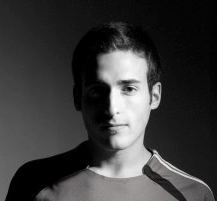 When I was a young child, I would sit and listen to my parents and hang on their every word. I can remember asking, “What does that word mean?” or, “Why does it have to happen like that?” I can only imagine my parent’s thought process, as they were forced to find an answer that would suffice. A parent thinks carefully in these situations, knowing that their response will be carried with their child from that point forward.
When I was a young child, I would sit and listen to my parents and hang on their every word. I can remember asking, “What does that word mean?” or, “Why does it have to happen like that?” I can only imagine my parent’s thought process, as they were forced to find an answer that would suffice. A parent thinks carefully in these situations, knowing that their response will be carried with their child from that point forward.As I grow older, I begin to find myself in the same conversational dilemma. As I work with students who are learning how to speak and write English, I am asked similar questions, “What does that word mean?” or, “Why do we say this like that?”
I am a big fan of teaching through conversation and like anything in life it is best to start at the beginning. We go over phrases like, “Good morning. How are you? What did you do last night?” It’s an ongoing process, but we steadily work our way through it.
At first, they are unsure about what to say, but over time, they become comfortable with the phrases and you can see the pride on their face as we talk with one another. I try my best to consciously think about what I say because I know if I say something out of the ordinary I will be asked to explain what I just said.
Of course you can’t be “on” forever and eventually I find myself in a situation where further explanation is required. To be honest, one of the best questions I was ever asked came from one of my students who is undergoing college preparation and already knows English.
 We were finishing another day of classes when I said, “Have a good one.” I was received with a sideways glance and was asked, “Have a good one? What’s that?” I had never thought about it before. “It must be a Canadian thing,” she said as we went our separate ways. I began doing a little research and asked if anyone had heard the phrase before. Of course, a lot of them agreed that they have heard the phrase prior to me asking, but never really thought about the meaning behind it.
We were finishing another day of classes when I said, “Have a good one.” I was received with a sideways glance and was asked, “Have a good one? What’s that?” I had never thought about it before. “It must be a Canadian thing,” she said as we went our separate ways. I began doing a little research and asked if anyone had heard the phrase before. Of course, a lot of them agreed that they have heard the phrase prior to me asking, but never really thought about the meaning behind it.Having a good one. It’s obviously a good will statement. I guess the real question is, what does the one refer to? In true Canadian fashion, I believe we have found a way to wish someone well without having to refer to anything in specific. It’s a good-natured send off with a twist of modern day ease. It says, “I may not know everything about your day, but I want you to have a good one.”
The next time you say goodbye to someone – stop and think. You may not realize it, but this phrase may already be part of your spoken vernacular. As for me, I need to re-think my approach to spoken dialect. I am going to take things to another level. It’s all about encouraging social “positivism” – Be sure to have yourself a good TWO.




3 comments:
Very interesting!! I will definitely be sure to have a good TWO!! :)
Yes, it is a Canadian expression. Though it's most intuitive to think of "one" as "day", but I think it's more general than that, in terms of time period. It could be that the person you're saying it to won't be met again for a while or you say it to your buddy at the end of the evening.
It's interesting the little phrases we don't even think about but just say. Even "take it easy." Makes you wonder who came up with all these conversation closers.
Post a Comment